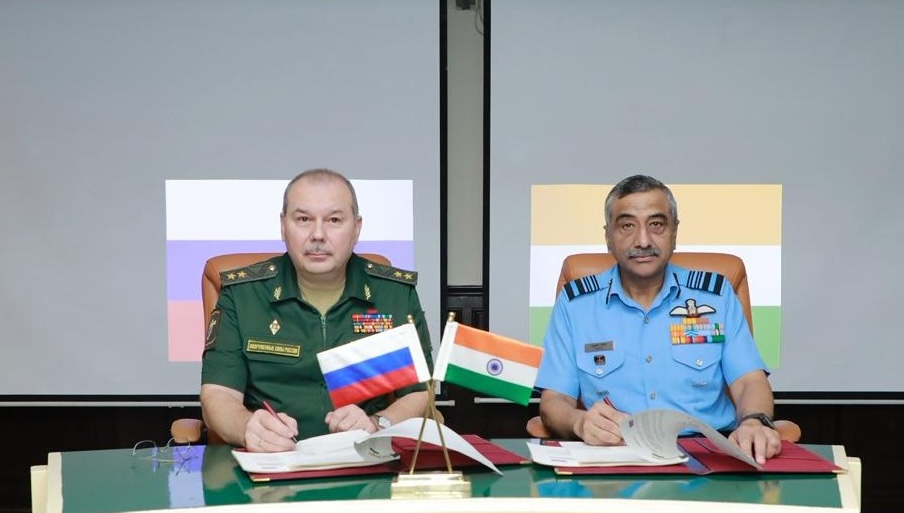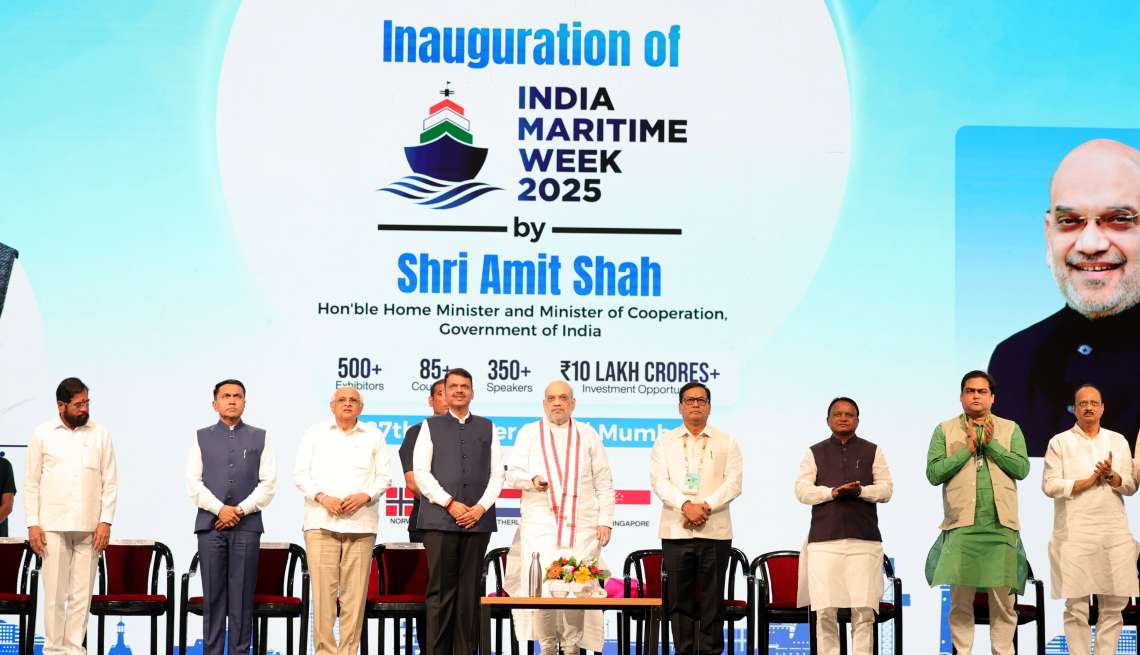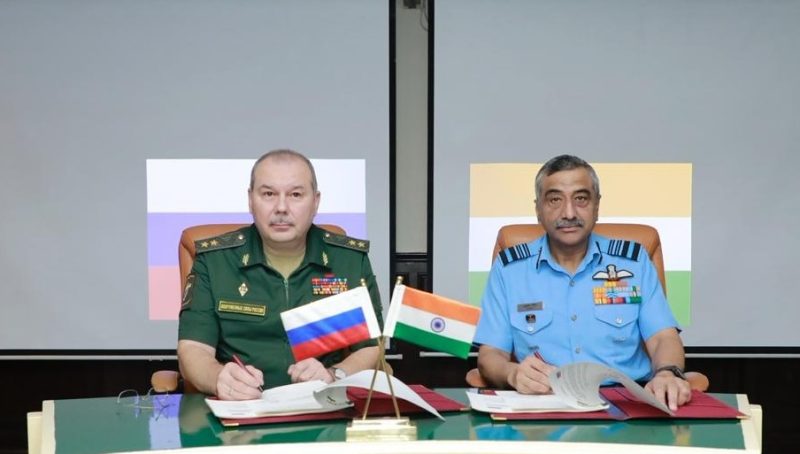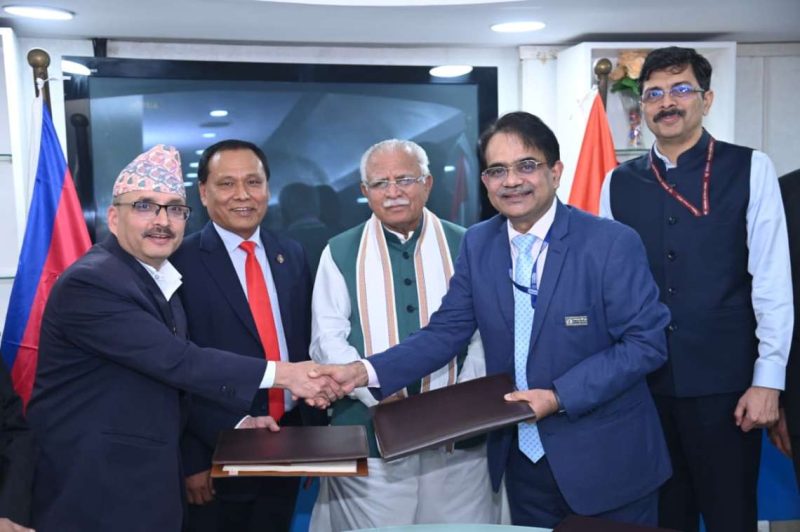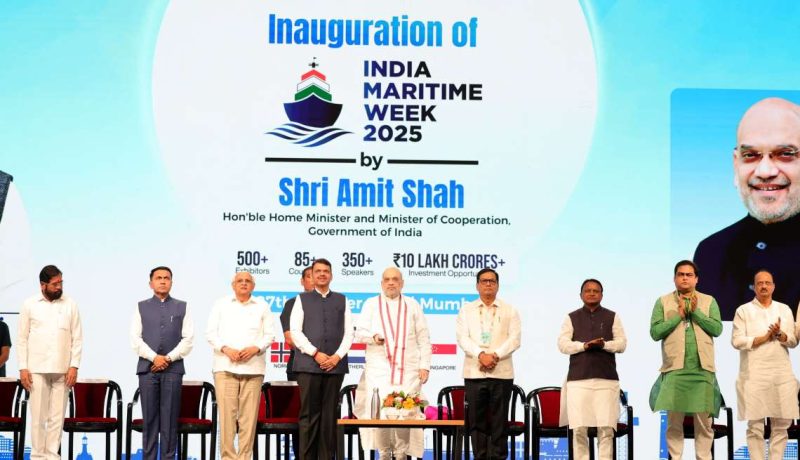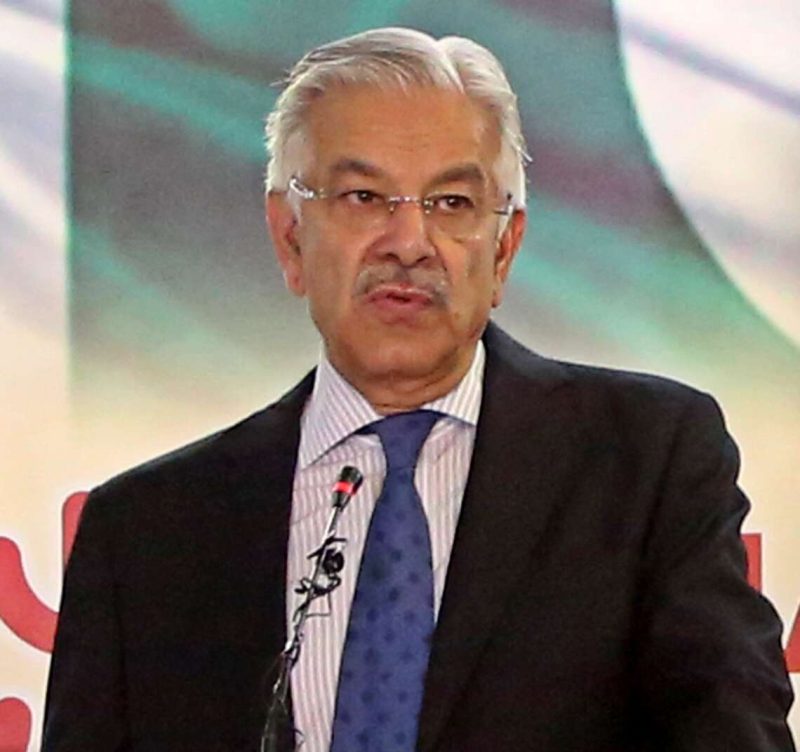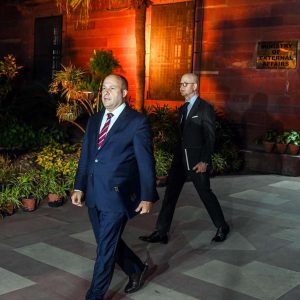PM Modi stated that in India, chips represent more than just technology; they are a means to fulfill the aspirations of millions of citizens…reports Asian Lite News
Our dream is that every device in the world will have an Indian-made chip and 100 per cent of electronic manufacturing should happen in the country, Prime Minister Narendra Modi said on Wednesday.
Inaugurating the ‘Semicon India 2024’ at the India Expo Mart in Greater Noida, PM Modi said the meaning of chips in India is not just limited to technology but is a medium to fulfil the aspirations of crores of citizens.
Underlining that India is a huge consumer of such chips, he emphasised that the world’s finest digital public infrastructure (DPI) was built upon it.
“This small chip is doing big things to ensure last-mile delivery in India. Be it India’s UPI, Rupay Card, Digi Locker or Digi Yatra, multiple digital platforms have become a part of the everyday life of the people of India,” the Prime Minister noted.
Stressing that the country is set to play a big role in driving the global semiconductor industry, he highlighted that the government is offering 50 per cent financial support for setting up semiconductor manufacturing facilities, with state governments also playing a key role in this effort.
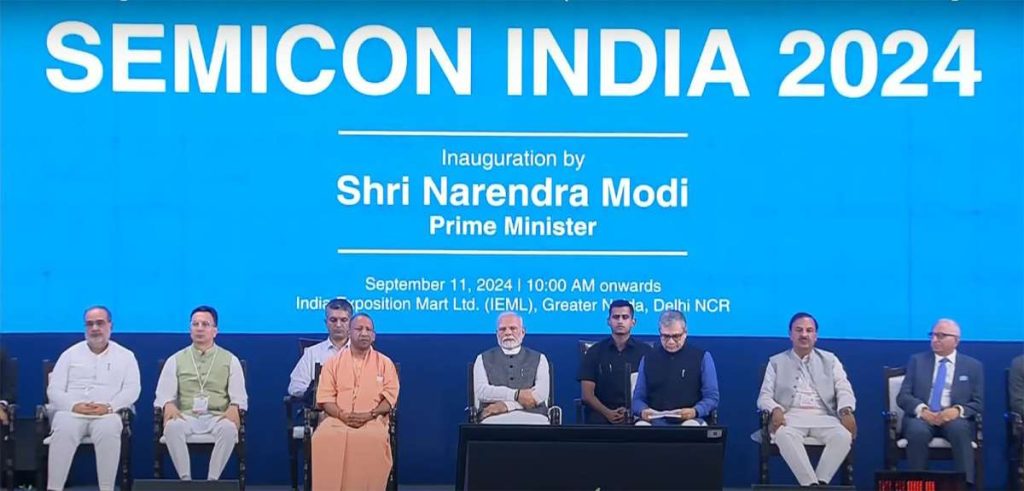
Because of these policies, he said, India has attracted investments worth more than Rs 1.5 lakh crore in a very short time and many more projects are in the pipeline.
PM Modi also revealed plans to establish a semiconductor research centre at the Indian Institute of Space Sciences, in collaboration with IITs, to produce not only high-tech chips for today but also next-generation chips.
The Prime Minister also urged those who question India’s focus on semiconductors to study the success of the Digital India Mission.
For the success of Digital India, the Prime Minister said that necessary reforms and infrastructure were initiated to make mobile handsets and data affordable in India.
With India’s electronics sector now valued at over $150 billion, the Prime Minister outlined a larger goal to grow the country’s electronics sector to $500 billion and create 6 million jobs by the end of this decade.
“Our goal is that 100 per cent of electronic manufacturing should happen in India. India will make semiconductor chips and the finished product too,” said the Prime Minister.
Whether it is mobile manufacturing, electronics, or semiconductors, “our focus is clear — we want to build a world that doesn’t stop or pause in times of crisis but keeps moving forward,” PM Modi emphasised.
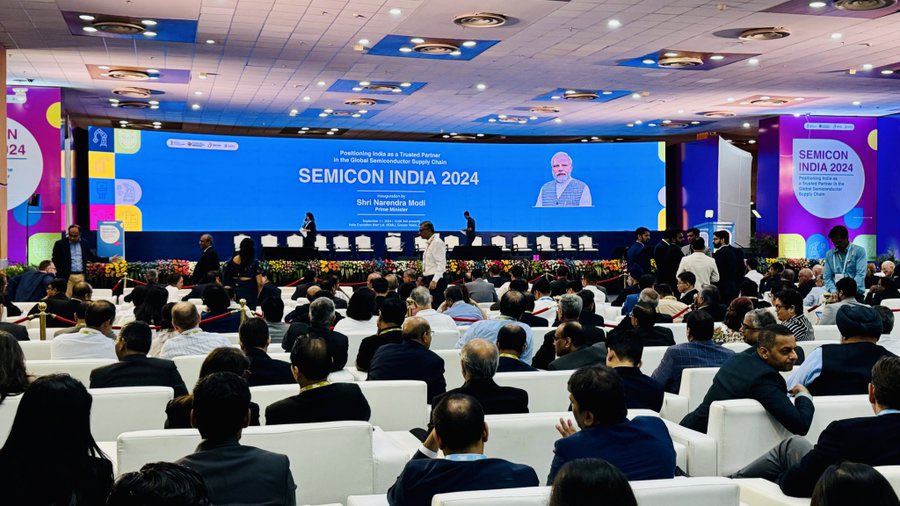
CEOs Applaud Modi
Leading figures from the global semiconductor industry praised Prime Minister Narendra Modi’s leadership and vision for advancing India’s semiconductor sector during their addresses at SEMICON India 2024, held here at the India Expo Mart on Wednesday.
Among those who spoke were Ajit Manocha, President & CEO of SEMI; Randhir Thakur, CEO & MD of Tata Electronics; Kurt Sievers, President & CEO of NXP Semiconductors; Hidetoshi Shibata, CEO of Renesas Electronics; and Luc Van Den Hove, CEO of IMEC.
Ajit Manocha, President & CEO of SEMI, began his address by expressing admiration for the scale of the event.
“I would start with the word WOW… based on the size and scale of this event. This is unprecedented and exponential,” Manocha said.
He lauded PM Modi’s exceptional leadership, noting, “His leadership has inspired not just India but the entire world.” Manocha highlighted India’s rapid progress in the semiconductor sector, referencing PM Modi’s pivotal role in kickstarting the industry.
“We were walking earlier, now we are running… Opportunities are there,” he added.
Randhir Thakur, CEO & MD of Tata Electronics, thanked PM Modi for making the exhibition possible and noted India’s strides in establishing its first commercial fab in Gujarat and an Indigenous semiconductor plant in Assam.
“Both projects received approval from the Government of India in record time, setting a global benchmark,” he said, emphasising Tata’s collaboration with Taiwan’s Powerchip Semiconductor, which provides access to proprietary technology to address markets such as AI, automotive, and data storage.
Kurt Sievers, President & CEO of NXP Semiconductors, emphasised the importance of collaboration, ambition, and trust.
“This is a big milestone on the transformational journey of India,” Sievers said, noting that NXP has been in India for 50 years and praised the country’s combination of innovation, democracy, and trust, which attracts businesses like his to work in India.
Sievers reiterated NXP’s commitment, stating, “NXP is here to stay and committed to boosting the semiconductor ecosystem in India.”
Hidetoshi Shibata, CEO of Renesas Electronics, spoke about the company’s partnership with CG Power to establish one of India’s first semiconductor assembly facilities in Gujarat. Shibata added that Renesas is expanding its operations in India, including doubling its headcount in Bengaluru and Hyderabad by next year.
He shared insights into Renesas’ role in bringing sophisticated semiconductor technologies to the global market and praised India’s potential in the sector.
Luc Van Den Hove, CEO of IMEC, emphasised the importance of a long-term R&D strategy for semiconductor development, calling it a marathon rather than a sprint. He praised India’s commitment to semiconductor manufacturing and expressed IMEC’s readiness to form strategic partnerships with India.
“The world needs a reliable supply chain, and who can be a better-trusted partner than the world’s largest democracy,” Van Den Hove said, pledging IMEC’s support for India’s ambitious plans.
The event underscored India’s growing influence in the semiconductor industry, with global leaders acknowledging PM Modi’s leadership and the country’s potential to become a key player in the global semiconductor supply chain.

‘India in Sweet Spot’
With artificial intelligence (AI) fuelling global semiconductor demand, around 150 new fabrication units will be required to meet the industry’s ambitious $1 trillion target by 2030 and India will need to achieve exponential growth to maximise its share, industry leaders said on Wednesday.
Speaking at the ‘Semicon India 2024’ event here inaugurated by Prime Minister Narendra Modi in the presence of key industry stakeholders, Ajit Manocha, President and CEO, SEMI, said that the country is on the path to becoming the next semiconductor powerhouse in Asia, and the stars are now aligned to create an ecosystem that enables growth for India and the world.
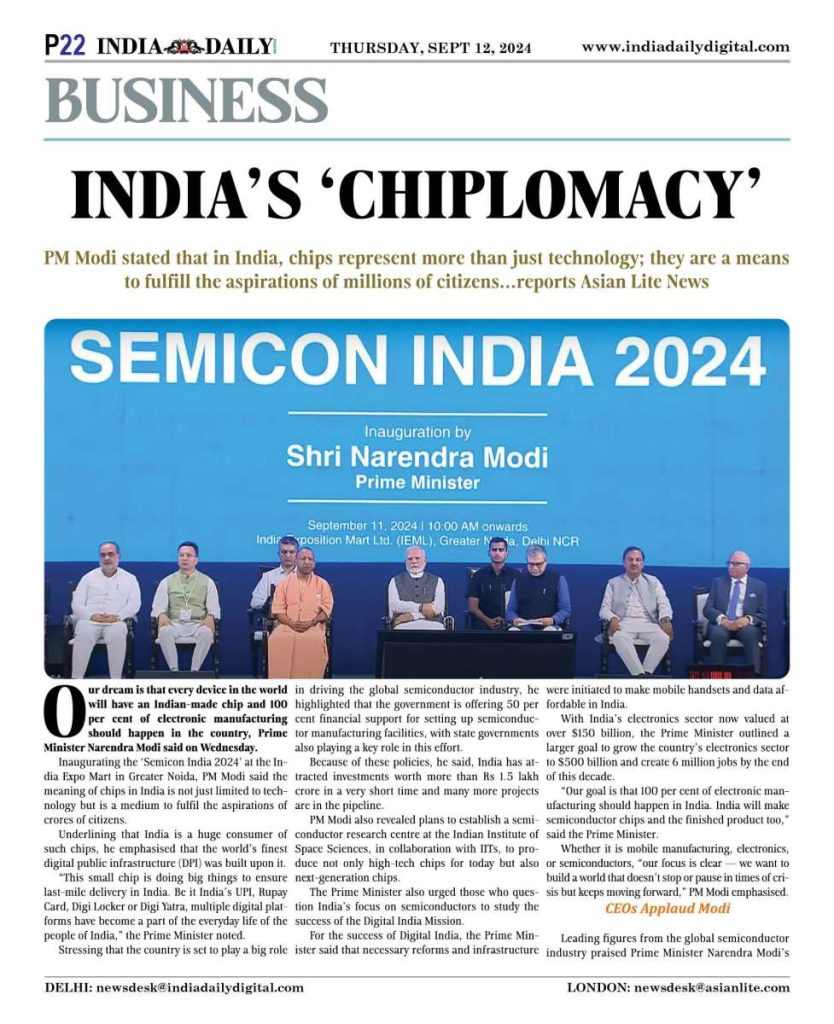
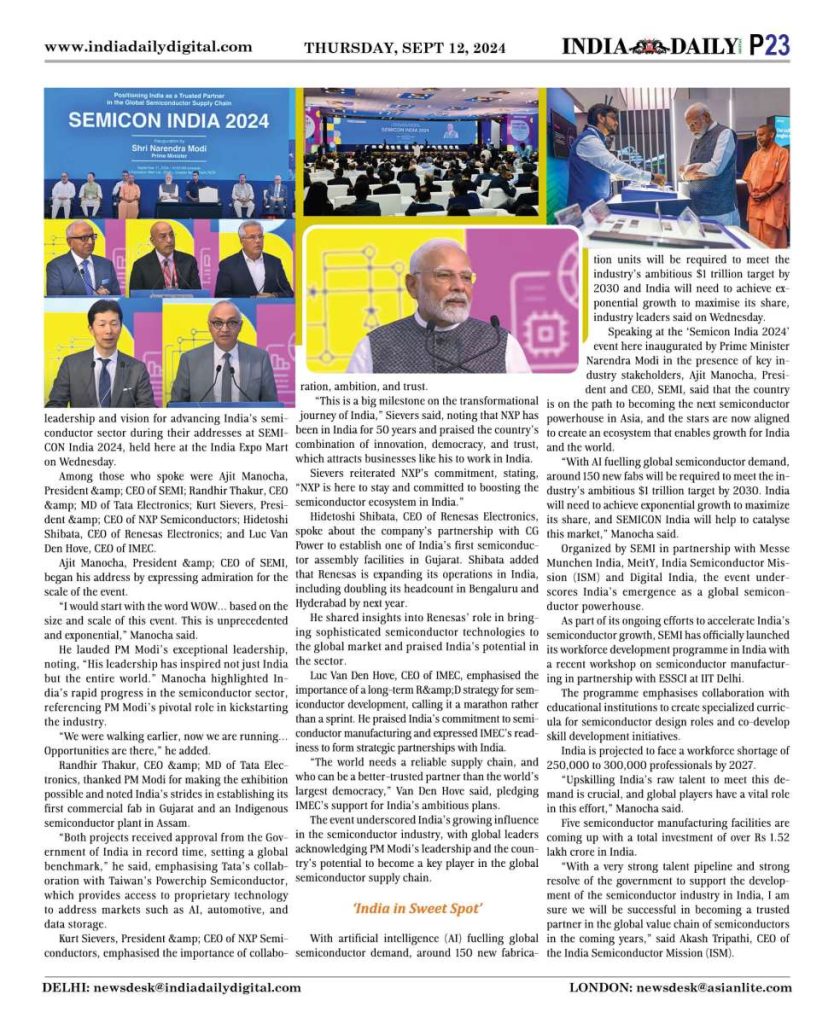
“With AI fuelling global semiconductor demand, around 150 new fabs will be required to meet the industry’s ambitious $1 trillion target by 2030. India will need to achieve exponential growth to maximize its share, and SEMICON India will help to catalyse this market,” Manocha said.
Organized by SEMI in partnership with Messe Munchen India, MeitY, India Semiconductor Mission (ISM) and Digital India, the event underscores India’s emergence as a global semiconductor powerhouse.
As part of its ongoing efforts to accelerate India’s semiconductor growth, SEMI has officially launched its workforce development programme in India with a recent workshop on semiconductor manufacturing in partnership with ESSCI at IIT Delhi.
The programme emphasises collaboration with educational institutions to create specialized curricula for semiconductor design roles and co-develop skill development initiatives.
India is projected to face a workforce shortage of 250,000 to 300,000 professionals by 2027.
“Upskilling India’s raw talent to meet this demand is crucial, and global players have a vital role in this effort,” Manocha said.
Five semiconductor manufacturing facilities are coming up with a total investment of over Rs 1.52 lakh crore in India.
“With a very strong talent pipeline and strong resolve of the government to support the development of the semiconductor industry in India, I am sure we will be successful in becoming a trusted partner in the global value chain of semiconductors in the coming years,” said Akash Tripathi, CEO of the India Semiconductor Mission (ISM).
ALSO READ: India Eyes Leadership in Global Chip Market



